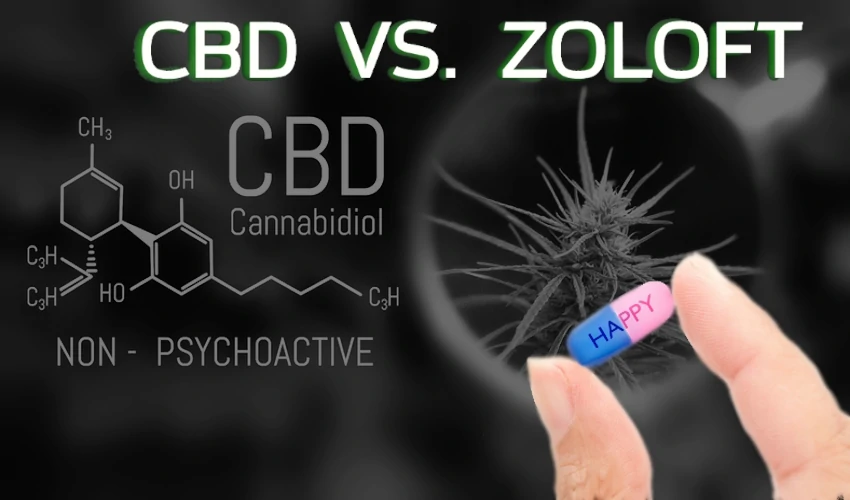In general, anxiety levels are on the rise and so is the need for solutions. Are powerful prescription drugs the best answer or is there a better way to attack anxiety’s root cause?
Anxiety is a natural response our bodies produce as a result of a perceived threat. So what’s causing all this anxiety in today’s modern world? Is there a natural solution to anxiety that doesn’t involve the risk of chemical dependency ?
Yeah.
CBD oil can be, and has been, used by millions of people as a natural alternative for anxiety, and in lieu of prescription drugs such as Zoloft or similar SSRI anti-depressants.
Despite a long history of misinformation on marijuana, the cannabis compound known as ‘Cannabidiol‘, (CBD), has gained runaway momentum among the scientific and medical communities over the last few years (and we could just be seeing the ‘tip of the iceberg’). CBD’s ability to interact with receptors through-out the body has made it subject to ongoing research for a wide variety of health benefits.
Selective Serotonin Re-uptake Inhibitors (or SSRIs) like Zoloft and prozac are typically prescribed for depression and anxiety — two symptoms that CBD has been internationally praised for helping to manage.
In this article we’ll take a look at the root causes for anxiety, how SSRI’s like Zoloft work, and how CBD works to fight against anxiety symptoms.
Lets Dive In.
CBD vs. Zoloft: Understanding The Science Behind CBD
What Exactly is CBD And How Does it Work?
Having had the experience of running a CBD website, these are the basics for understanding how CBD can help relieve anxiety (and act as a natural alternative to SSRI’s like Zoloft and Prozac).
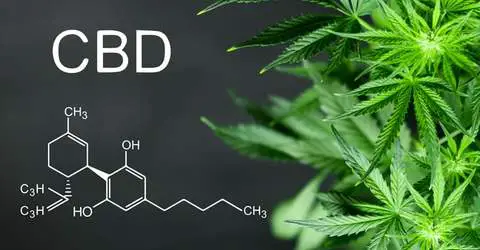
CBD is a molecular compound made naturally by the cannabis plant, but (unlike a similar compound, THC) CBD can NOT get you ‘high’.
In 2018, CBD was made federally legal at the highest levels of the United States federal government, and again, it doesn’t get you ‘high’.
CBD is one of over 100 naturally produced compounds that are found in the Cannabis plant. These 100+ compounds are called Cannabinoids
Cannabinoids from the cannabis plant are important, because they directly interact with receptors in the human body. More specifically, the CBD compound attaches itself to a very common type of receptor that is present throughout the entire network of our Central Nervous System –
This network of receptors inside the human body is known as the Endo-Cannabinoid System. And the main role of the Endocannabinoid System, is to maintain balance and homeostasis inside the body.
CBD also works as a block to THC, and is often used to decrease the effects of too much THC.
The diagram from Leafly below does a great job simplifying this interaction.
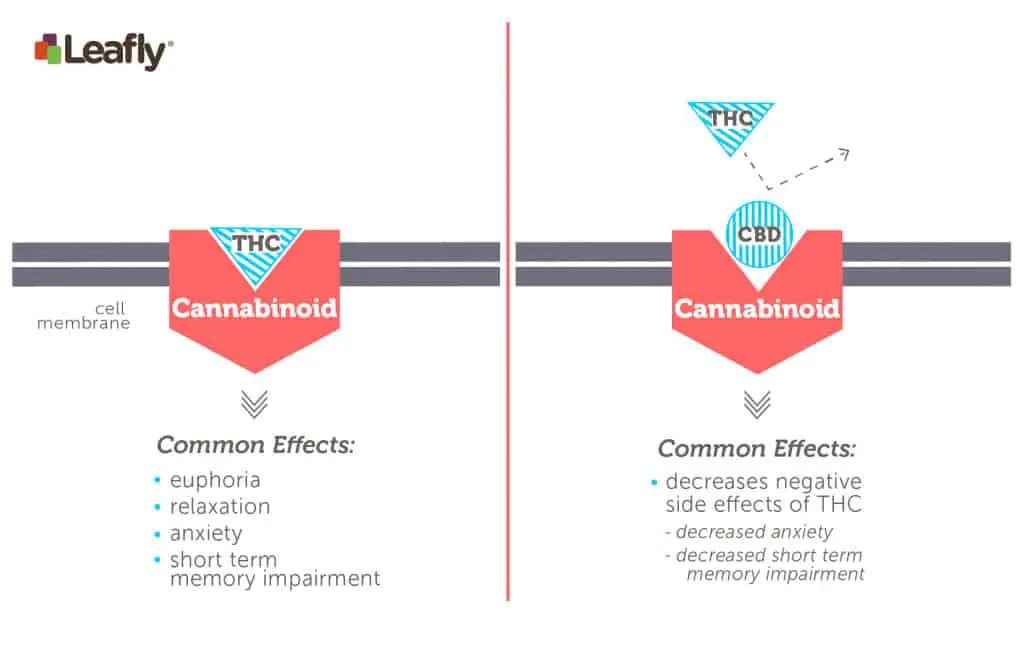
To sum it up, the cannabis plant produces cannabinoids, which fit like a ‘lock and key’ into our human endo-cannabinoid system which is part of our central nervous system.
It’s this interaction between CBD and the endo-cannabiinoid system that is critical for understanding how CBD can help naturally alleviate anxiety symptoms.
CBD And The Endo-Cannabinoid System (ECS): Simplified
The Endo-Cannabinoid System , ECS, is a network of receptors, part of our central nervous system, and one of our most important internal bodily systems.
The ECS is responsible for maintaining the ‘balance of bodily systems’ in the human body, and works similar to a thermostat. For example, if the temperature in your house is either too cold, or too hot, the thermostat coordinates either heating, or cooling, to normalize the temperature.
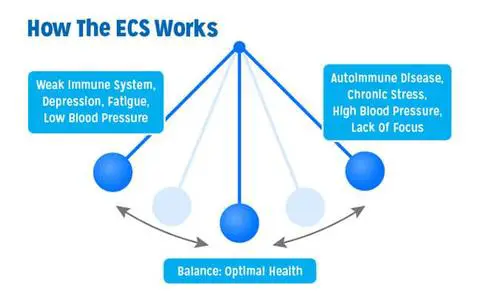
If you are experiencing anxiety, inflammation, or a pain response in your body, then your endo-cannabinoid system kicks on to normalize (or balance) your body’s response.
CBD And Endo-Cannabinoid Receptors: CB1 & CB2 Receptors
All cannabinoids (including both CBD and THC) interact (although very differently) with the same two types of ‘endo-cannabinoid receptors’. CB1 receptors and CB2 receptors. Both receptors are part of the EndoCannabinoid System, and both interact with CBD. But each type of receptor has a different affect on the body.
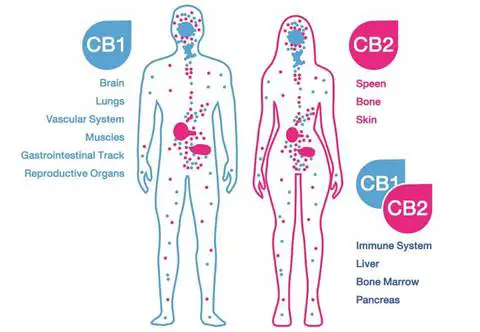
1. Cannabinoid Receptors Type 1 (CB1 receptors) –
CB1 receptors are most common in our central nervous system, and more specifically, they’re most heavily concentrated in the brain and spinal cord.
2. Cannabinoid Receptors Type 2 (CB2 receptors) –
CB2 receptors are most heavily concentrated in the immune system, the skin cells, and internal organs.
Due to the Endocannabinoid System’s responsibility for maintaining homeostasis in the entire body, CB1 and CB2 receptors form a connected network throughout the body.
The ECS can regulate pain, inflammation, anxiety, immune system response, addiction response, and many other bodily system responses, including regulation of chemicals that lead to depression.
CBD’s ability to interact with the endo-cannabinoid system, combined with CBD’s lack of side effects, make CBD a great candidate for replacing THC products and as a natural alternative to anxiety and depression meds that for dependence like Prozac, Zoloft, Xanax, or other SSRIs.
Why Do You Have Anxiety?
The Core Reasons Behind Depression and Anxiety
Some people say depression is caused by ‘off-balance‘ brain chemistry.
This is partially true…
But
Is depression caused by low levels of serotonin?
Or are low levels of serotonin caused by depression?
This is a bit of a ‘chicken and egg’ senario.
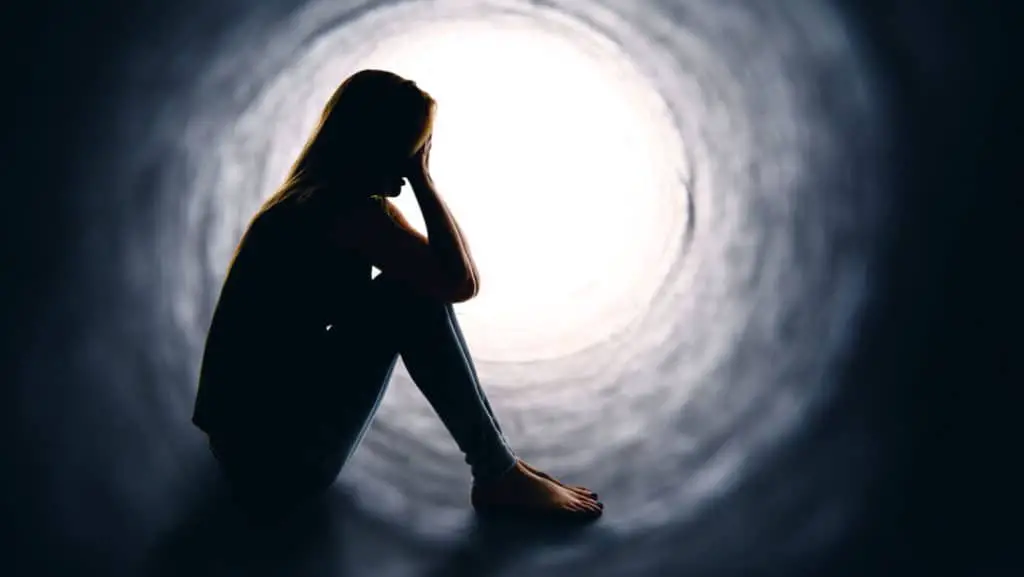
Here’s a good example.
If you’re depressed because you feel directionless in life, it causes your serotonin levels to drop and you can start feeling anxious or even depressed.
If you then artificially raise you serotonin levels, did you find your direction in life?
Probably not.
Are you happy? Artificially, yes.
You’re not addressing the root cause, you’re just creating a dependency on a drug in order to feel better.
SSRIs like Zoloft work by artificially blocking brain receptors to improve your brain chemistry . But that doesn’t necessarily mean that there was anything wrong in the first place.
Your anxiety may be caused by your body’s natural reaction to your current ‘state in life’ and your life decisions.
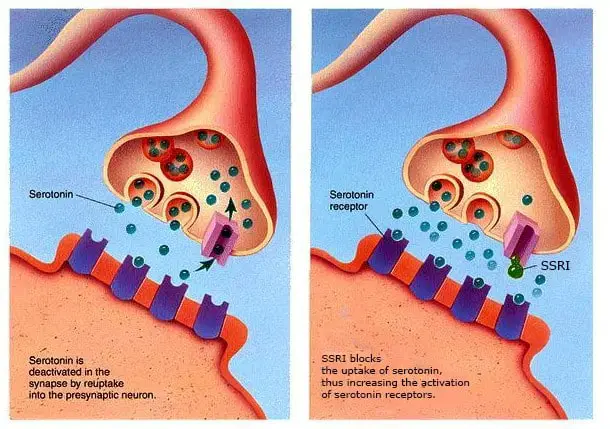
The Selective Serotonin Re-Uptake Inhibitor, SSRI, creates a boost in your brain’s serotonin levels. This ‘boost in available serotonin’ makes getting off of SSRI’s unpleasant when the serotonin levels fade away.
We’ve been taught from drug commercials that depression is caused by a chemical imbalance in the brain, and that medications like Zoloft are needed to correct the imbalance.
However, there is actually very little, if any, evidence to support this ‘chemical imbalance theory.’
According to medical researchers, depression is much more complex than just a chemical imbalance in the brain which can ‘easily be cured’ with medication.
Depression is triggered by a combination of biological, psychological, and social factors. Or said another way, your lifestyle choices, relationships, and your coping skills matter just as much, if not more so, than your genes.
10 Biggest Risk Factors (root causes) for Anxiety & Depression Include:
- Loneliness and isolation
- Lack of social support
- Recent stressful life experiences
- Family history of depression
- Marital or relationship problems
- Financial strain
- (Early) childhood trauma or abuse
- Alcohol or drug abuse
- Unemployment or underemployment
- Health problems or chronic pain
Any one of these factors (let alone a few or more combined) can heavily weigh on your mental health, and probably should cause feelings of uneasiness and anxiety.
Medication won’t solve any of these problems. These problems can only be solved by making progress in life. There are healthier ways (other than SSRI’s) to find solutions and deal with these situations like exercise, meditation, and therapy.
None of which have side effects or are known to cause dependency.
How SSRIs Like Zoloft Work: Managing Depression and Anxiety
SSRIs work on a basic level by increasing the level of serotonin available for your brain to absorb.
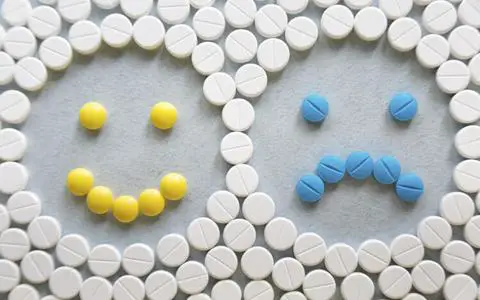
Serotonin is a chemical in the brain which has multiple functions, and it’s commonly referred to as the ‘happy chemical’, because the serotonin molecular-compound contributes to feelings of happiness and wellbeing.
The principle behind SSRIs is to block (or inhibit) the ‘serotonin re-uptake,’ and by doing this, it creates a reservoir of additional serotonin available in the nerve gap.

In the brain, serotonin is typically ‘tossed’ from one nerve cell synapse, traveling across the nerve gap, and caught by a ‘serotonin receptor’ on another nerve cell, on the other side of the nerve gap.
(similar to a pitcher throwing a baseball across home plate to the catcher).
This same action happens millions of times on different nerve cells in the brain. But sometimes, the serotonin is ‘tossed’ by one nerve cell, but is dropped by the other receptor.
When this happens, the serotonin falls into the ‘nerve gap’, and is ‘scooped up’ by the serotonin ‘Re-Uptake’. (red crescent shaped as illustrated above).
SSRI’s block this re-uptake.
Because the serotonin re-uptake is blocked, the serotonin cannot be ‘scooped up’ and the ‘serotonin receptors’ now have an abundance of serotonin floating around the nerve gap which they can now receive and absorb at will.
This increase in serotonin absorption increases overall serotonin levels, and can create short term relief of depression symptoms and short term reduction in anxiety.
The downside of this, is that over time, because of the increase in serotonin levels, the body slowly cuts back on the amount of serotonin it naturally produces.
This causes the body to become dependent on the SSRI in order to be able to maintain normal serotonin levels.
The FDA has also labeled all SSRIs with a black box warning for its long term effects of suicidal thoughts in teens and young adults.
Managing Your Depression and Anxiety with CBD

Similar to SSRIs like Zoloft, CBD also targets the serotonin receptors in the brain, …but in a much different fashion.
Unlike Zoloft, CBD is non-addictive and you can’t become dependent on CBD.
This is one of the most attractive differences between CBD and Zoloft.
A medical study using rodents published by the British Journal of Pharmacology found that…
“CBD, by activating specifically, the ‘5-HT1A serotonin receptors’, can reduce both mental and physical behavioral responses to stress”
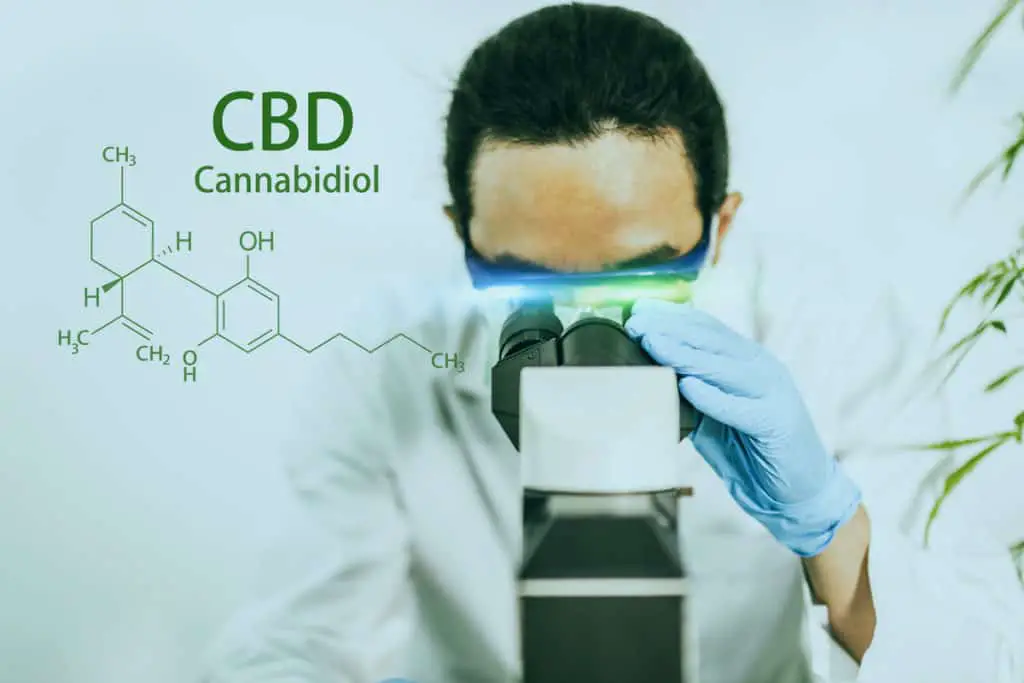
Backing this up, and according to Psychology Today, a double-blind, randomized clinical trial looked at the benefits of CBD for psychosis, which can occur in severe cases of depression.
In the study, 40 volunteer patients were given CBD or a prescription anti-psychotic drug. Both treatments helped patient symptoms equally, however, the group taking CBD enjoyed many fewer side effects and no problems with movement, weight gain, or hormonal deregulation.
There are many more pre-clinical studies that come to the same result. But becuase CBD was only made Federally legal in 2018 it needs more research.
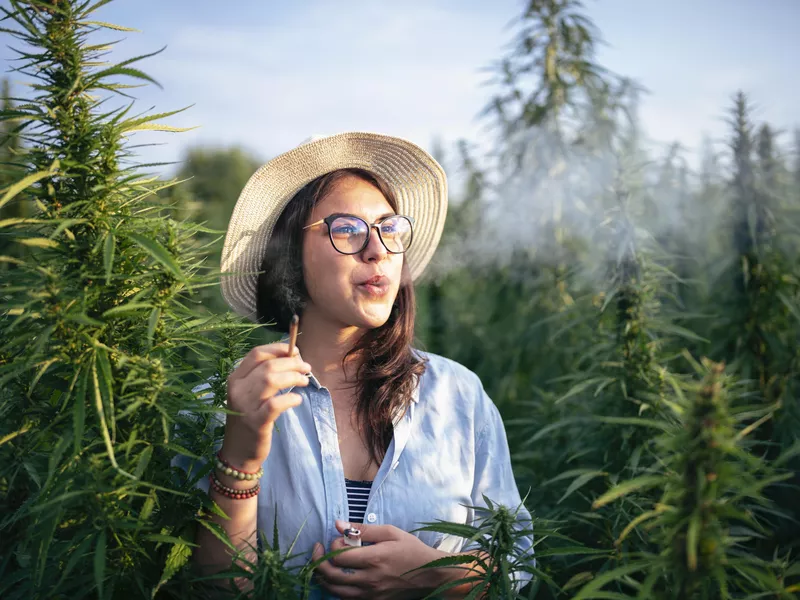
According to the Anxiety and Depression Association of America, CBD needs more research.
But that does not mean that CBD doesn’t help. It simply means that the FDA have not yet conducted enough properly controlled clinical trials to support a solid scientific conclusion for CBD to treat either anxiety or depression over the long term.
However, the unofficial ‘anecdotal evidence’ of real people, using real CBD, and seeing real results everyday, is overwhelming.
Why Do Doctors (still) Prescribe SSRI’s Like Zoloft?
If SSRIs like Prozac and Zoloft come with a black box warning and a likeliness for dependency, then why are doctors still prescribing them?

Studies show that SSRI’s do work short term.
But all too often the long term side effects are overlooked by the patients’ immediate needs.
SSRIs are not considered “addictive” because you will not crave the need to take an SSRI.
However, SSRIs are dependence-forming.
Stopping abruptly is dangerous, and you will have to wean yourself off of SSRIs to prevent withdrawal symptoms.
(The definition of ‘non-addictive’ seems to be up for debate.)
Doctors in many medical marijuana states are well aware of the current research on SSRI side effects, and have begun prescribing cannabis (both CBD and THC) and even offering psychedelic therapy for patients with anxiety or depression.
As a result, it’s becoming more common for CBD to be used as a natural alternative for Zoloft and other SSRIs, and there’s plenty of supporting evidence.
CBD and Zoloft: Reviews on Using CBD as a Natural Alternative to Zoloft
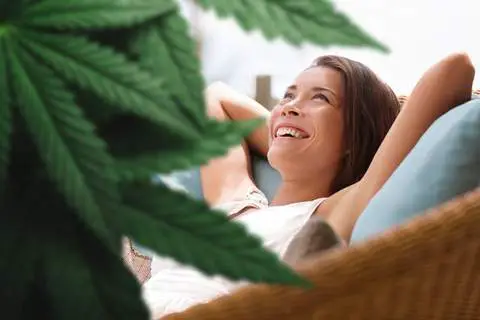
Since clinical studies can take years to perform, a lot of the evidence for CBD’s effectiveness comes from unofficial ‘anecdotal evidence’ in the form of patient reviews.
“It may take time getting my mind and body acclimated to zero meds, but the time investment was totally worth it. CBD treats my symptoms far more effectively than SSRIs ever did, and now I’m not adding addictive and habit-forming medications to my already complicated-enough body. CBD has greatly enhanced my mental health, and there is a mountain of evidence that shows it has huge potential to help those with depression or anxiety.” – Kathryn
“CBD has been a lot cheaper and more effective, without having to worry about the adverse side effects. I replaced multiple medications with a twice daily regimen of full spectrum CBD oil and I couldn’t be happier… But everybody’s going to be a little different on how effective it is for them. So, the best thing I could suggest is to try it and see how it works for you.” – Cody Sims
“CBD Oil may not be a cure for depression, but it does help with serotonin levels in the brain! I find my mood is nearly always upbeat. I’m confident, sociable, happy, mindful, focused, and generally, in great health. My anxiety, panic attacks, OCD, PTSD are immensely calmed down with the CBD Oil. Excruciating pain from a bone spur in my hip was no longer an issue.” – Marisol
Using CBD as a Natural Alternative to Quit Zoloft And Avoid Withdrawal Symptoms
If you’re currently on an SSRI and plan on quitting, it’s not recommended to do so ‘cold turkey.’
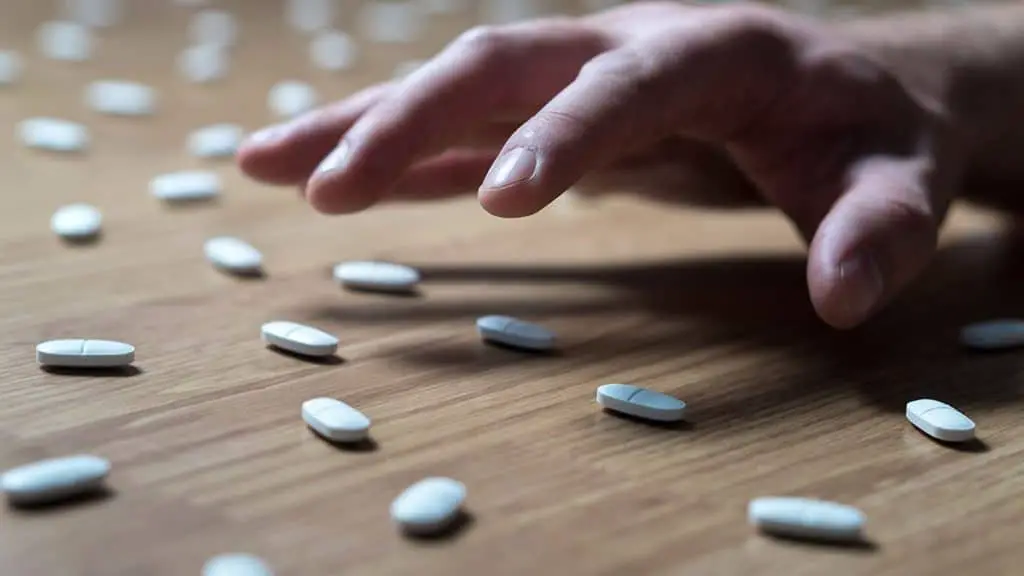
SSRIs such as Zoloft are powerful medications that can make you dependent on them over time. Gradually weaning yourself off is a must if you want to try and avoid the unpleasant withdrawal symptoms.
Experts have found that weaning off of SSRI’s can take anywhere from a few weeks to a couple months to achieve. But if taken consistently, CBD has been found to assist with withdrawal symptoms.
Taking CBD oil can be beneficial to calm the inevitable aggravation that comes with weaning off of SSRIs.
Here’s a related article on using both Psilocybin and CBD to Kick Addiction.
Conclusion – CBD and Zoloft: Opting for a Natural Alternative to SSRIs
Depression, anxiety, and mental health are commonly overlooked in today’s world. Nobody wants to be told that they have to make a lifestyle change in order to address (improve) their mental health.
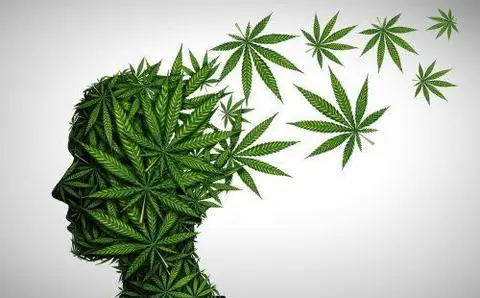
It’s much easier to just take a Zoloft pill and feel better quickly (temporarily) and with-out effort.
The problem with this approach, is that a quick fix (like taking a pill) may have longer-lasting long-term side effects.
More research is needed before CBD reaches FDA approval for depression and anxiety. However, individual States with medical marijuana programs already have doctors prescribing CBD (and THC) to patients looking for a natural alternative to Zoloft and other SSRIs.
Don’t get us wrong, we’re not saying CBD is a magical cure.It’s not. But CBD does offer a serious side-effect-free option to those looking for a healthier alternative to their SSRI medications.
What does THC feel like? Here’s our thoughts (based on both logic and experience)
Check Out Out Our Other Interesting Articles About CBD…
- Using Psilocybin and CBD To Quit Addictions
- What’s the Difference: Marijuana vs. Cannabis vs. CBD vs. THC vs. Hemp ?
- CBD vs Xanax: CBD As A Natural Alternative to Xanax for Anxiety
- CBD Oil Praised As Natural Remedy for Mental Wellness
- This Is The Reason Why CBD (Might) Show Up On Your Drug Test ?
- DON’T Buy CBD On Amazon: Here’s Why
- Using CBD To Quit Weed: The Science (and my experience)
- CBD vs. Zoloft: A Natural Alternative For Anxiety?
- Why Does Weed Make (Some) People Feel Paranoid ? Cannabis Explained
- Why Is Cannabis (still) Illegal in the United States ?
- CBD As a Prednisone Alternative For Dogs
Loved what you read?
Hit that share button and let the world in on the secret – we’d be thrilled!
Got thoughts? We’re all ears for your feedback, corrections, or a good old chat. Don’t be shy; drop us a line.
And hey, don’t miss out on our curated list of must-reads in the recommended books section.
Big thanks for diving in with us today!


